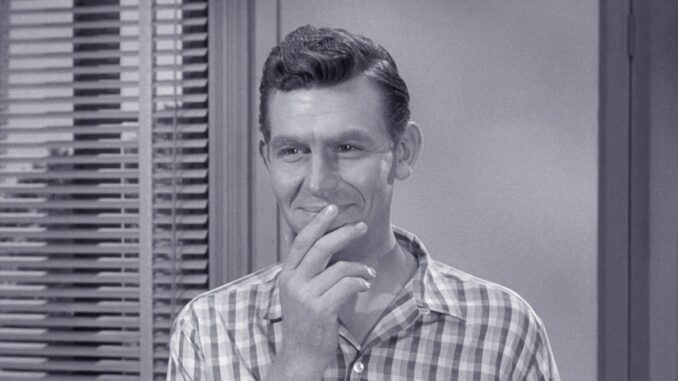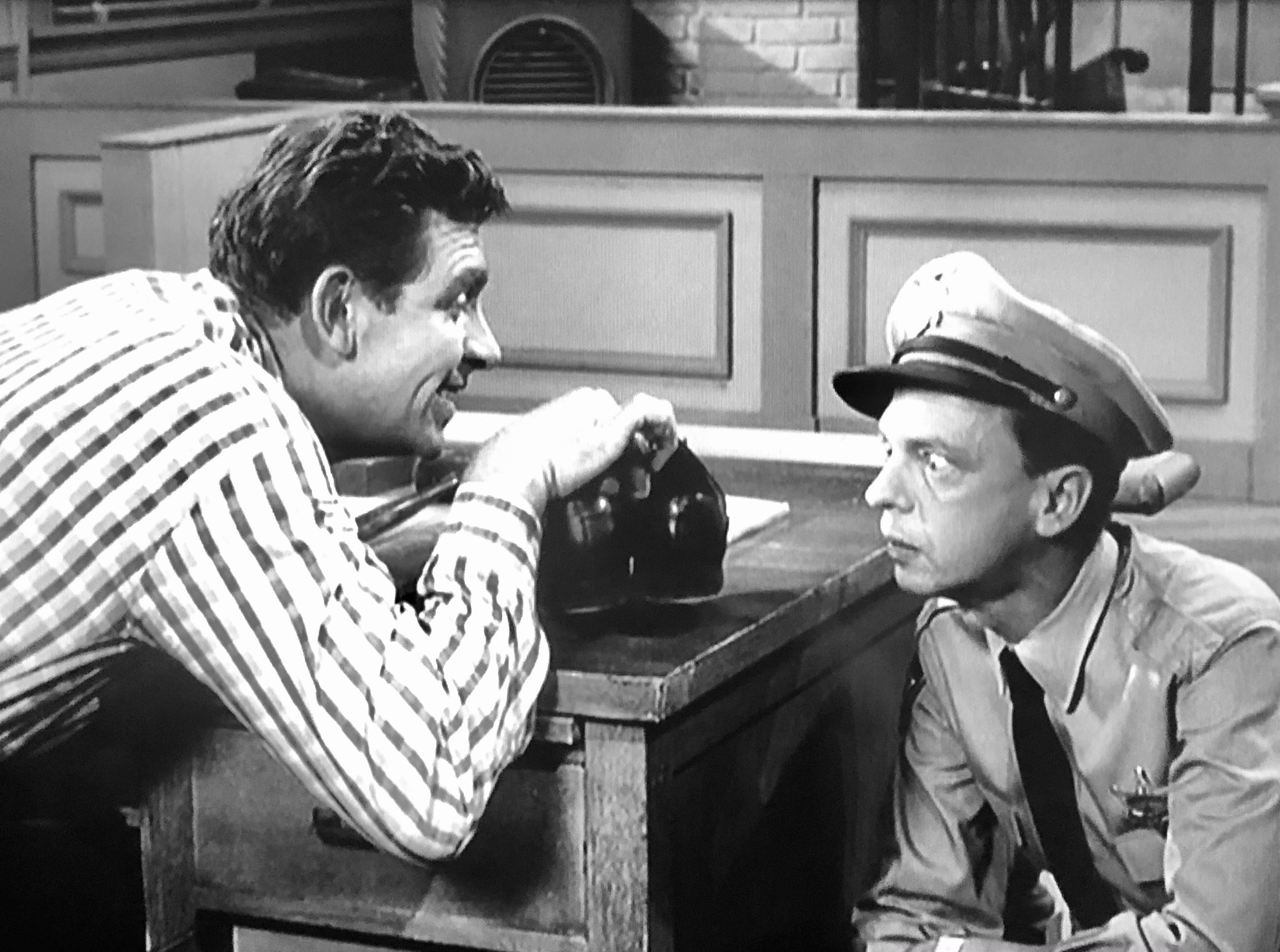
Introduction: Revisiting Mayberry’s Hidden Gem
When it comes to The Andy Griffith Show, fans often talk about the classics—like “Barney’s First Car” or “Opie the Birdman.” But nestled in Season 2 lies an overlooked gem: Episode 10, “The Clubmen.” It’s an episode rich in subtle humor, character insight, and social satire. If you haven’t watched it in a while, you’re missing one of Mayberry’s most delightfully awkward high-society misadventures.
Let’s take a deeper dive into what makes “The Clubmen” a standout in the series and why it still holds up decades later.
What Is “The Clubmen” About? A Quick Overview
A Tale of Two Worlds
In this episode, Andy and Barney are invited by Roger Courtney, a friend of Andy’s from Raleigh, to visit The Esquire Club, an exclusive men’s social club. It’s a classy, upper-crust world, far removed from Mayberry’s slow-paced, small-town charm. The idea? Possibly getting Andy considered for membership.
Barney’s Big Ambitions (And Bigger Blunders)
Barney, ever enthusiastic but totally out of his depth, tags along—determined to impress the elite crowd. What follows is a comedy of errors, as Barney stumbles through formal dinners, misreads social cues, and unintentionally derails Andy’s chances.
The Esquire Club: Symbolism and Satire
High Society vs. Small Town Simplicity
The Esquire Club represents everything Mayberry is not—formal, exclusive, and elite. But instead of glamorizing that lifestyle, the episode flips the script. It uses satire to show that true worth isn’t found in fancy dinners or cigar lounges—it’s in authenticity.
Mayberry Values in a Stuffy World
Andy’s calm charm and grounded nature contrast brilliantly with the pompous attitude of the club members. The message is clear: being real beats being refined.
Character Study: Barney Fife in the Spotlight
A Walking Bundle of Insecurities
Barney’s antics in this episode aren’t just played for laughs—they reveal something deeper. His eagerness to fit in exposes his underlying insecurity and constant need for validation.
From Comedy to Cringe—And Back Again
Whether he’s using the wrong fork or name-dropping poorly, Barney’s presence is beautifully cringeworthy. And yet, you can’t help but root for him. That’s the magic of Don Knotts—making awkwardness endearing.
Andy Taylor: The True Southern Gentleman
Polished, Not Pretentious
Andy could’ve played the social-climbing game—but he doesn’t. He’s polite, adaptable, and intelligent, but never fake. His integrity is what makes him appealing—not just to the audience, but ironically, to the elite crowd too.
Why Andy Turns Down the Club Offer
In the end, Andy politely declines the potential membership. Why? Because it just isn’t him. He knows who he is, and he values his roots. That moment delivers the episode’s emotional and moral high point.

Why This Episode Still Matters Today
The Eternal Clash of Class and Culture
The central theme—authenticity vs. aspiration—resonates in any era. In a world obsessed with status and appearances, “The Clubmen” reminds us that being true to yourself matters more than fitting in with the so-called elites.
Comedy with a Purpose
Yes, it’s funny. But it’s also smart. That’s what makes The Andy Griffith Show timeless. It laces heartfelt lessons within its humor without ever sounding preachy.
Behind-the-Scenes Nuggets: What You Didn’t Know
Roger Courtney’s Actor Had Real-Life High Society Ties
Actor Frank Ferguson, who played Roger Courtney, was known for roles as polished professionals. His casting as a sophisticated clubman was spot-on—and possibly tongue-in-cheek.
The Episode Wasn’t a Ratings Smash, But Became a Cult Favorite
While not the most watched episode of Season 2, fans and critics later recognized “The Clubmen” as a clever piece of social commentary wrapped in sitcom packaging.
Fan Reactions: How Viewers See It Today
Nostalgic and Relatable
Modern fans often say it mirrors situations they’ve been in—feeling out of place, pretending to belong, or simply realizing home is where the heart is.
Barney’s Relatability Keeps It Alive
Barney might be the punchline, but in many ways, he’s also the everyman—striving, failing, and still hoping. That’s why this episode hits an emotional chord.
The Episode’s Best Moments, Ranked
-
Barney mispronouncing the menu items
-
Andy subtly guiding him through dinner etiquette
-
Barney trying to smoke a cigar with zero finesse
-
Andy’s final graceful exit from the club offer
-
The warm return to Mayberry
Cultural Context: America in the Early ‘60s
Class Mobility Was a Hot Topic
During the early 1960s, America was steeped in conversations about class, culture, and identity. This episode subtly taps into that zeitgeist without ever getting heavy-handed.
TV Shows as Moral Mirrors
The Andy Griffith Show often reflected real American values—and concerns. “The Clubmen” is no exception. It’s TV doing more than entertain—it educates with warmth.
Why It’s a Must-Watch Episode for Any Fan
If you’re new to the show, or just diving back in, “The Clubmen” is a perfect example of how The Andy Griffith Show combined laughs with life lessons. It’s not just filler—it’s flavorful, like good Southern cooking.
Legacy: What “The Clubmen” Teaches Us Today
Stay Grounded. Be Yourself. Laugh a Little.
That’s really it. In a world full of pressures to conform and climb ladders, this episode whispers what we all need to hear sometimes: you’re enough, just as you are.
Final Thoughts: Mayberry’s Wisdom Lives On
You could say “The Clubmen” is a fish-out-of-water story. Or a culture clash. Or a comedy of errors. But really, it’s a heartwarming reminder that your worth isn’t determined by the company you keep, but by the values you live by.
It’s Andy being Andy. It’s Barney being Barney. And it’s Mayberry being Mayberry—real, relatable, and ridiculously charming.
FAQs
1. What season and episode is “The Clubmen” in The Andy Griffith Show?
It’s Season 2, Episode 10, originally aired on December 4, 1961.
2. Why did Andy turn down the offer to join the Esquire Club?
Andy realized that the club’s elitist atmosphere didn’t align with his simple, down-to-earth values. He preferred staying true to himself and Mayberry.
3. Was this episode based on a real social club?
While the Esquire Club wasn’t real, it satirized the kind of exclusive, members-only clubs common in big cities during the 1950s and ’60s.
4. What made Barney’s behavior so memorable in this episode?
Barney’s over-the-top attempts to fit in—his misuse of etiquette, forced sophistication, and awkward social interactions—made for classic comedy and exposed his insecurities in a relatable way.
5. Is “The Clubmen” considered a fan favorite today?
Yes, many fans now view it as a sleeper hit of Season 2, praised for its humor, character development, and subtle social commentary.